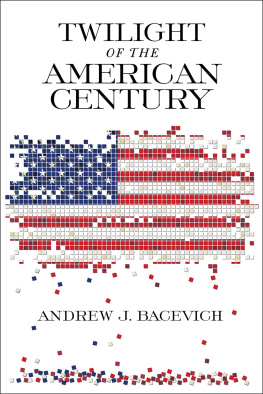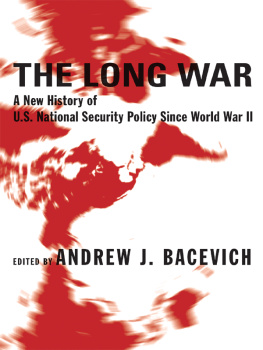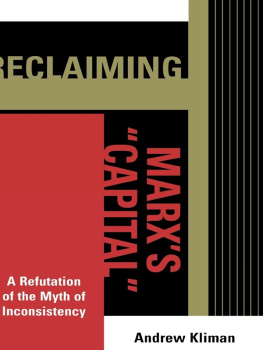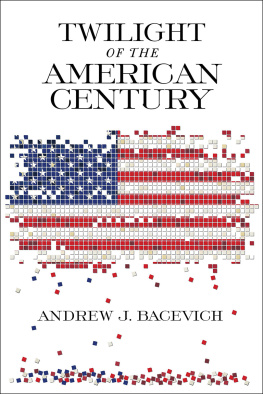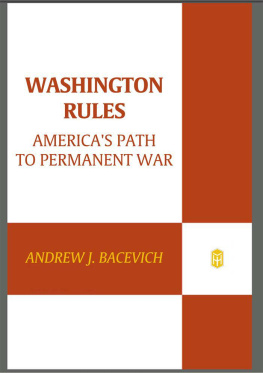Andrew J. Bacevich (ed.) - American Conservatism: Reclaiming an Intellectual Tradition
Here you can read online Andrew J. Bacevich (ed.) - American Conservatism: Reclaiming an Intellectual Tradition full text of the book (entire story) in english for free. Download pdf and epub, get meaning, cover and reviews about this ebook. year: 2020, publisher: Library of America, genre: Politics. Description of the work, (preface) as well as reviews are available. Best literature library LitArk.com created for fans of good reading and offers a wide selection of genres:
Romance novel
Science fiction
Adventure
Detective
Science
History
Home and family
Prose
Art
Politics
Computer
Non-fiction
Religion
Business
Children
Humor
Choose a favorite category and find really read worthwhile books. Enjoy immersion in the world of imagination, feel the emotions of the characters or learn something new for yourself, make an fascinating discovery.

- Book:American Conservatism: Reclaiming an Intellectual Tradition
- Author:
- Publisher:Library of America
- Genre:
- Year:2020
- Rating:3 / 5
- Favourites:Add to favourites
- Your mark:
- 60
- 1
- 2
- 3
- 4
- 5
American Conservatism: Reclaiming an Intellectual Tradition: summary, description and annotation
We offer to read an annotation, description, summary or preface (depends on what the author of the book "American Conservatism: Reclaiming an Intellectual Tradition" wrote himself). If you haven't found the necessary information about the book — write in the comments, we will try to find it.
American Conservatism: Reclaiming an Intellectual Tradition — read online for free the complete book (whole text) full work
Below is the text of the book, divided by pages. System saving the place of the last page read, allows you to conveniently read the book "American Conservatism: Reclaiming an Intellectual Tradition" online for free, without having to search again every time where you left off. Put a bookmark, and you can go to the page where you finished reading at any time.
Font size:
Interval:
Bookmark:
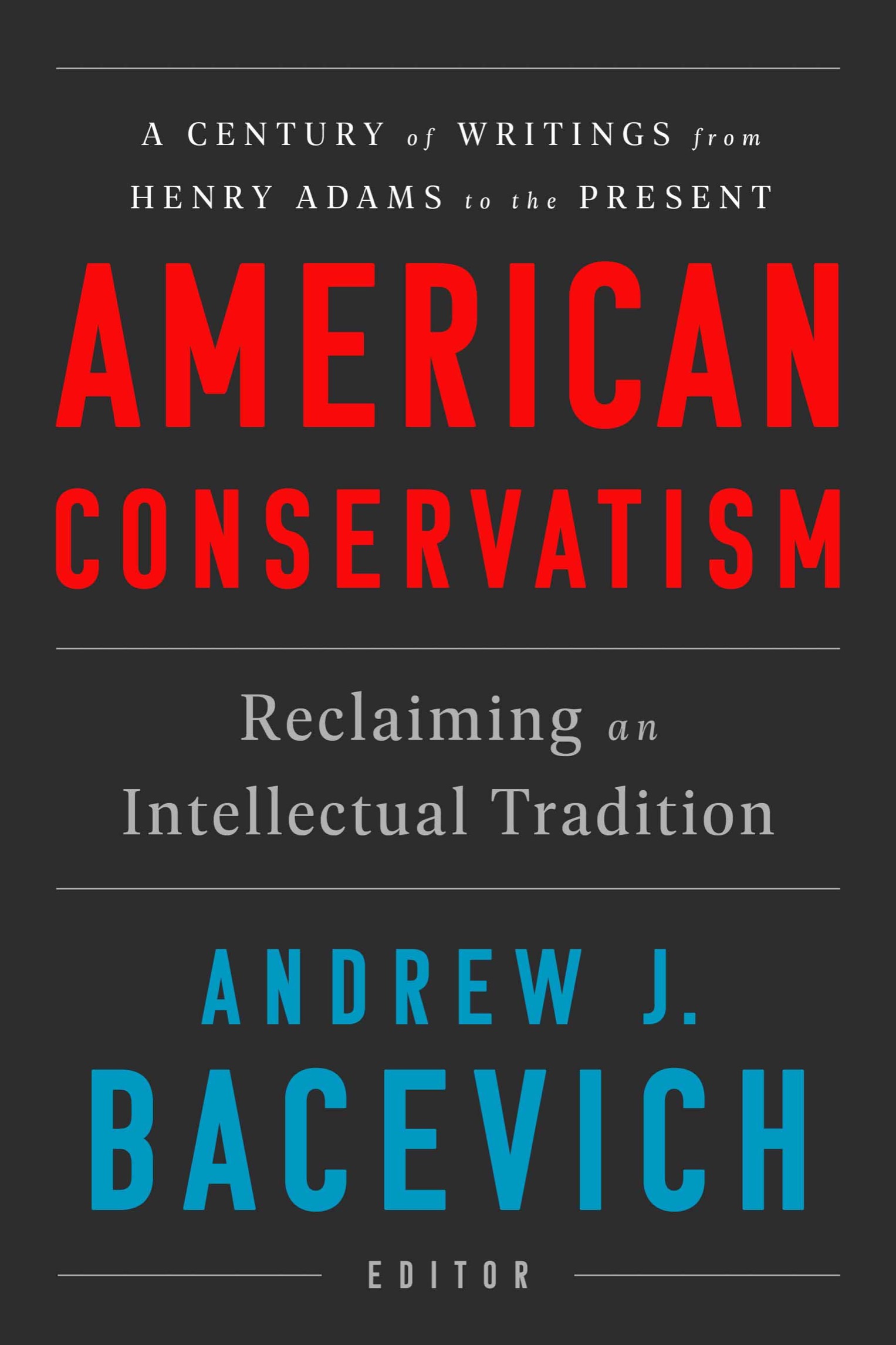
AMERICAN
CONSERVATISM
Reclaiming an
Intellectual Tradition
ANDREW J. BACEVICH, EDITOR

LIBRARY OF AMERICA E-BOOK CLASSICS
AMERICAN CONSERVATISM: RECLAIMING AN INTELLECTUAL TRADITION
Copyright 2020 by Literary Classics of the United States, Inc., New York, N.Y.
All rights reserved.
Published in the United States by Library of America.
Visit our website at www.loa.org.
No part of this book may be reproduced in any manner whatsoever without
the permission of the publisher, except in the case of brief
quotations embodied in critical articles and reviews.
Some of the material in this volume is reprinted with the permission
of holders of copyright and publishing rights. See page .
Distributed to the trade in the United States by Penguin Random House Inc.
and in Canada by Penguin Random House Canada Ltd.
Library of Congress Control Number: 2019943746
eISBN 9781598536577
1 3 5 7 9 10 8 6 4 2
Contents
Introduction
By Andrew J. Bacevich
T HE MODERN American conservative traditionroughly dating from the dawn of the twentieth centuryemerged in reaction to modernity itself. Modernity meant machines, speed, and radical changetaboos lifted, bonds loosened, and, according to Max Weber, the disenchantment of the world. It induced, and perhaps required, centralization. States accrued power. Bureaucracies thickened. Banks, corporations, rail systems, and industrial enterprises grew to mammoth proportions. War became more destructive.
Modernity promised liberation and for many did improve the quality of everyday life. Yet it also subjected individuals to immense and only dimly comprehended forces. In exchange for choice, it demanded conformity. Modernity demolished tradition or rendered it irrelevant. What remained of the past might retain interest as artifact but was drained of substantive relevance.
Liberals, progressives, leftistschoose what label you willhave tended to embrace modernity, seeing it, on balance, as a positive force. By comparison, conservatives have typically viewed modernity as a threat, responding to it with a mixture of apprehension, alarm, and horror. This anthology collects in a single volume noteworthy examples of the American conservative critique prompted by the encroachments of modernity.
That said, I am not suggesting that in the long, contentious, at times bitter debate about Americas purpose and destiny, proponents of conservatism have necessarily gotten things right. The issues being contested are too complex to allow for reductive judgments of right or wrong, good or bad. Yet in the crisis that has enveloped twenty-first-century Americaa crisis made starkly manifest by Donald Trumps election as U.S. president in 2016conservative principles deserve a second look, even, or especially, from those who bridle at the very use of the term.
Skeptics might respond that Americans today already have more than ample exposure to conservative perspectives, whether coming directly from Trumps White House, from megaphone-wielding House and Senate Republicans, or from outlets such as FoxNews, AM talk radio, and right-wing websites. Yet all of these qualify as conservative only in the sense that blue-chip recruits at a football factory qualify as student-athletes. Any resemblance to the real article is superficial and manufactured.
Donald Trump is not a conservative. Nor are the leaders of the Republican Party over which Trump presides. Prominent GOP figures such as Kentucky senator Mitch McConnell seem to adhere to no worldview worthy of the name. As for the provocateurs who inhabit the sprawling universe of rightwing media, their principal motive is not to promote genuine conservative values but to rabble-rouse and line their own pockets. Indeed, allowing Trump, McConnell, Sean Hannity, Laura Ingraham, Rush Limbaugh et al. to present themselves as exemplary conservatives testifies to the pervasive corruption of contemporary American political discourse.
So except among the multitudes who sport MAGA hats and look to the likes of Sean, Laura, and Rush for instruction, the conservative brand has of late been badly tarnished and even degraded. As a result, conservatism today has become synonymous with meanness, bigotry, and retrograde attitudes. The contents of this book suggest that this condescending characterization is wildly off the mark.
How did the American conservative tradition acquire a reputation as both noxious and intellectually disreputable? Trumpism provides a convenient but utterly inadequate answer to that question. More important are two related factors that long precede Trump. The first factor is historyor at least the myth-history to which Americans choose to attribute abiding significance. The second is the anti-conservative progressive tradition, whose adherents long ago seized the high ground in American intellectual life and have successfully defended it ever since.
Of course, it is progressives who curate that myth-history and thereby determine the hierarchy of truths that it purportedly yields. Preeminent in determining that hierarchy were two specific events, the one related to politics and the other to Americas role in the world. The first was the Great Depression. Then hard on its heelsas much sequel as distinct episodecame World War II.
Broadly speaking, in each case, the analysis and prescriptions offered by leading conservatives proved at least inadequate, where not downright misguided. On the Great Depression, fearing an irreversible expansion of state power, conservatives resisted the conclusion that restoring economic health was going to require large-scale and protracted federal intervention. On World War II, until the attack on Pearl Harbor, many influential conservatives strenuously opposed U.S. entry into the conflict that Nazi Germany had begun and appeared to be winning, fearing a recurrence of the disillusionment that occurred just two decades earlier when the United States, discarding all past precedent, had raised an army to fight in Europe.
Conservatives can no more escape these twin failures of judgmentfor so they have been judged ever sincethan the ghost of Jacob Marley can shed his chains. Yet concluding that on the two pivotal episodes of the twentieth century the left was right and the right was wrong soon enough gave rise to its own misimpressions and mistakes.
Crediting the New Deal with restoring American prosperity has turned out to be a vast oversimplification, impeding our understanding of the factors that finally brought the Great Depression to an end. In that regard, the global conflagration of another war rather than an array of well-intentioned but sometimes contradictory domestic reforms proved decisive. Worse still, identifying isolationism as an abiding temptation to which Americans were susceptible imparted an interventionist tilt in postwar U.S. policy, contributing appreciably to catastrophes such as Vietnam and the 2003 invasion of Iraq. Intent on inoculating the United States from so-called isolationism, the foreign policy establishment fell prey to militarism and ultimately preventive war. Throughout, dissent voiced by conservative intellectuals went largely unheeded.
In the aftermath of World War II, with the liberal ascendency in politics now at its height, liberal thinkers and activists denied even the existence of an intellectually coherent and morally acceptable alternative to their own beliefs. Liberals occupied, indeed owned, the vital center of American politics, as the historian and Harvard product Arthur Schlesinger Jr. put it, thereby consigning all others to the ignominious fringes. To the left of this vital center were communists, to the right conservatives. In Schlesingers construct, both were enemies of freedom: American communists as lackeys of the Soviet Union, conservatives as willing pawns of Big Business.
Font size:
Interval:
Bookmark:
Similar books «American Conservatism: Reclaiming an Intellectual Tradition»
Look at similar books to American Conservatism: Reclaiming an Intellectual Tradition. We have selected literature similar in name and meaning in the hope of providing readers with more options to find new, interesting, not yet read works.
Discussion, reviews of the book American Conservatism: Reclaiming an Intellectual Tradition and just readers' own opinions. Leave your comments, write what you think about the work, its meaning or the main characters. Specify what exactly you liked and what you didn't like, and why you think so.

